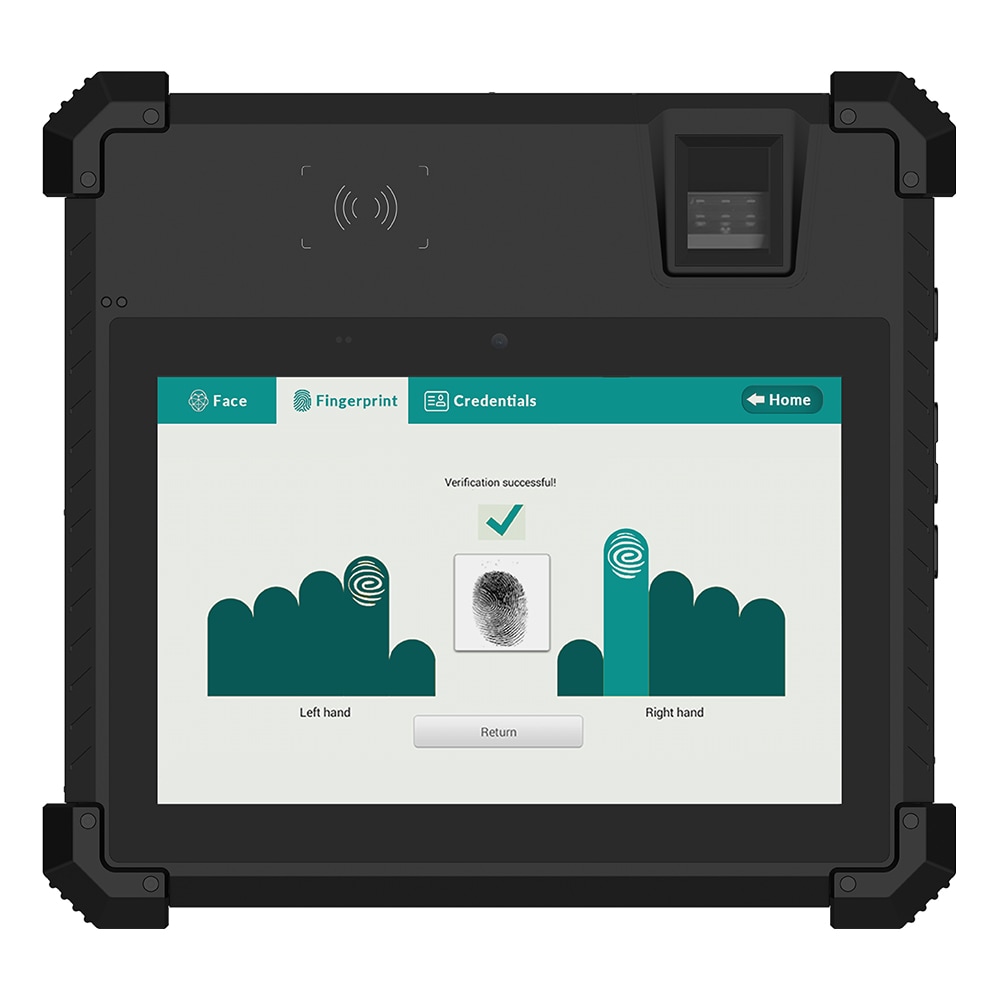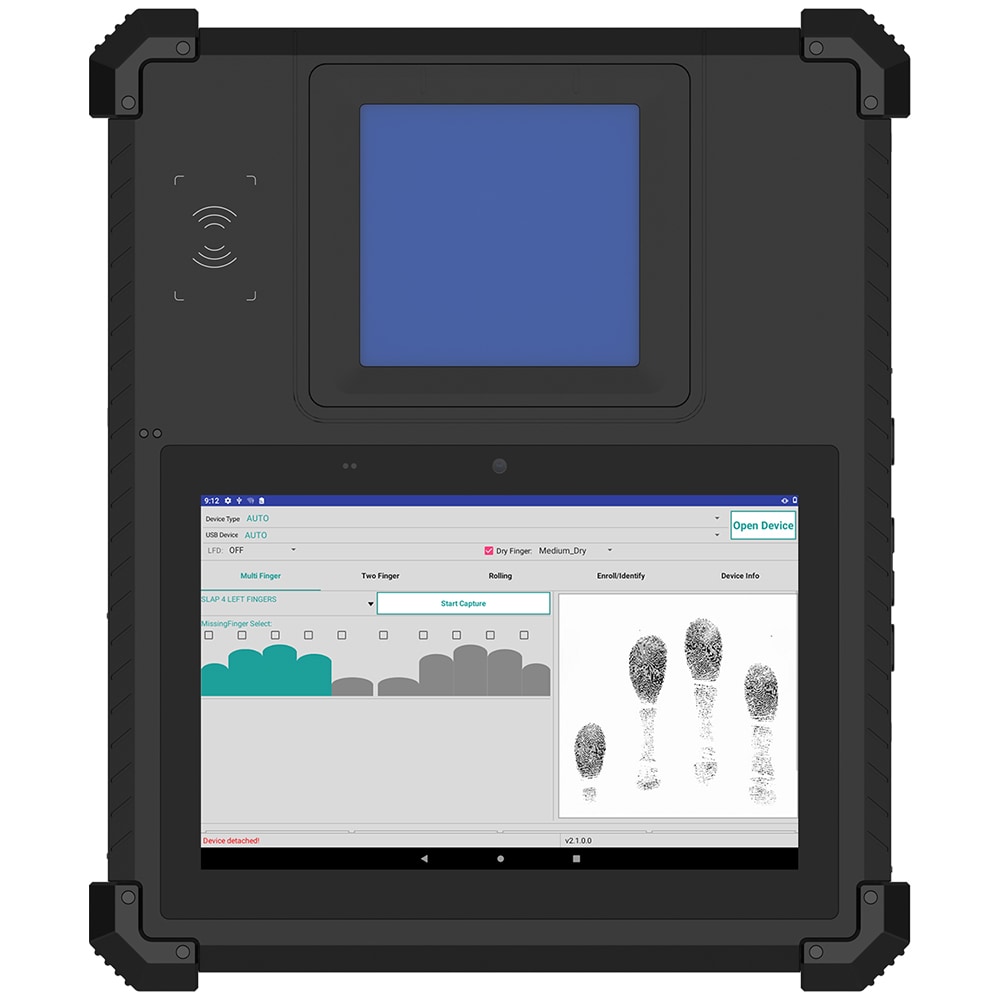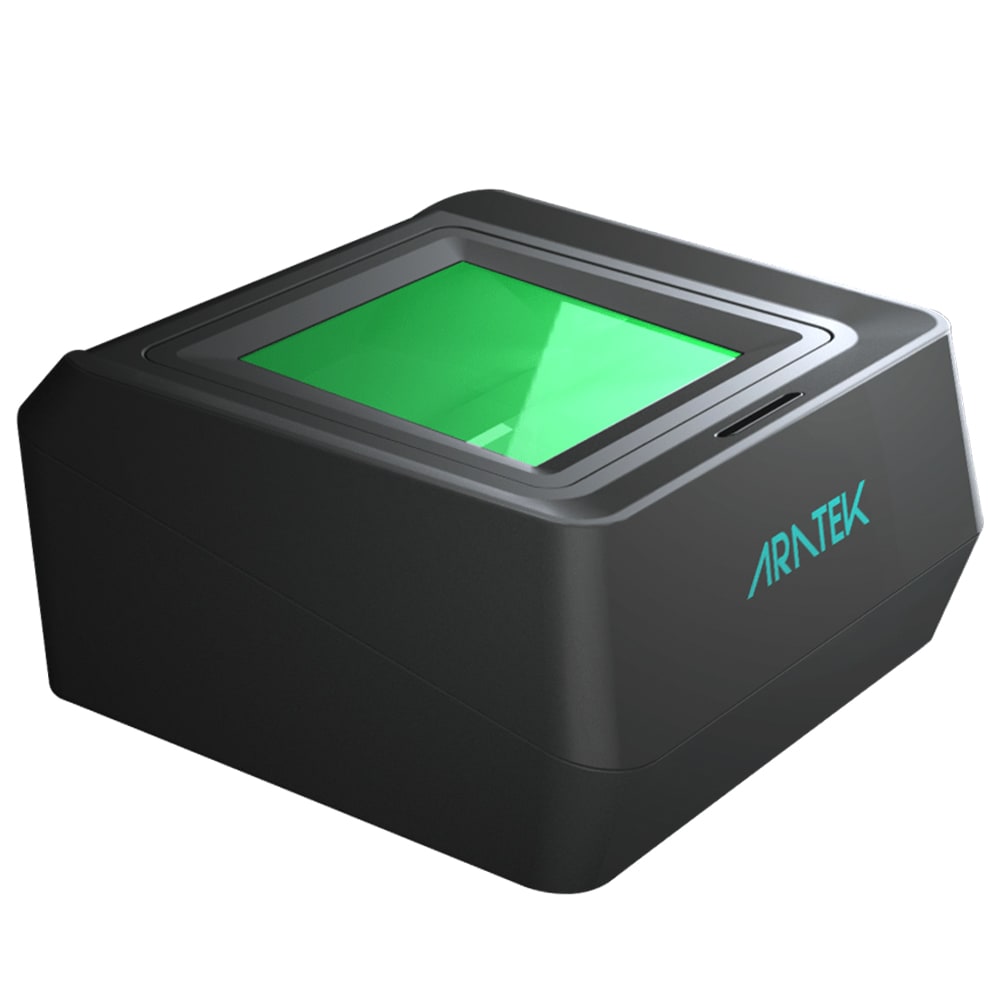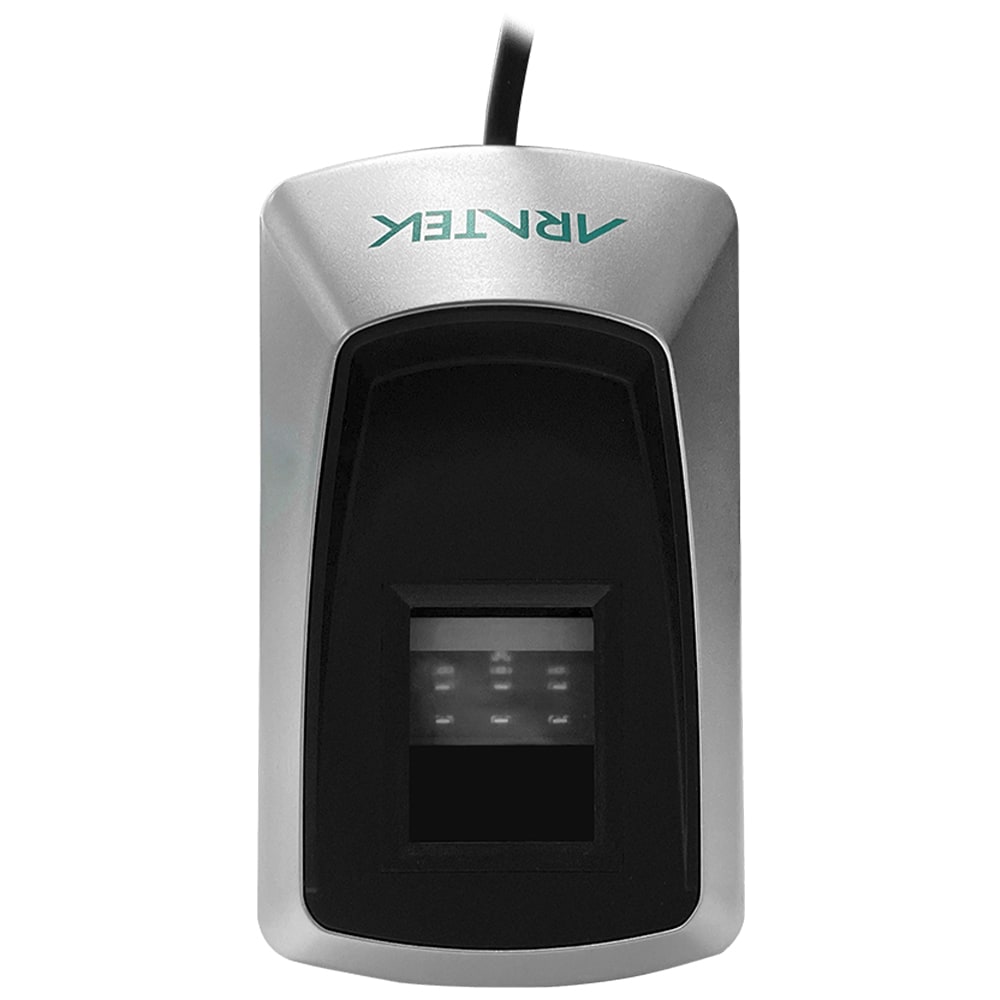
PRODUCT

Smarter Biometrics, Stronger Digital Identity.
VIEW ALL
product finder
solution
case study
support
Company

Identifying the World. Easily, Securely.


years of solid experience
20+
.jpg)
400+
customised projects



EN
.avif)

In an era dominated by mobile communication, the SIM card stands as the gatekeeper to a world of connectivity and basic services. With over 5.4 billion people wielding mobile phones, the importance of managing these tiny tech staples has never been more critical. Mandatory SIM card registration, a policy adopted by around 160 national governments as of 2024, has emerged as a global standard, aiming to safeguard users and streamline services. But as we sail into the digital future, a new player enters the arena – biometric registration. This article discovers the transformative impact of biometrics on SIM card registration, exploring how this synergy not only enhances security but also redefines the user experience.
SIM card registration is a regulatory process mandated by various governments and mobile network operators (MNOs) worldwide, requiring individuals to provide personal details and identification documents to activate and use a SIM card. The SIM registration process typically involves submitting information such as name, address, date of birth, and a valid ID number. In some cases, biometric data like fingerprints or facial scans are also collected. The primary purpose of SIM card registration is to associate each mobile number with the identity of its user, thereby aiming to enhance security, prevent crimes such as identity fraud, and ensure accountability in the use of telecommunication services. This regulatory measure also seeks to provide a framework for MNOs to manage their subscribers effectively and comply with national laws and guidelines.
In the tapestry of global telecommunications, the concept of SIM card registration weaves a complex pattern. As of recent years, around 160 national governments have implemented mandatory SIM card registration policies. This widespread adoption underscores a universal shift towards greater control and management of mobile services. The essence of these policies is straightforward: to register SIM cards, users must provide personal details such as their name, address, and often, a valid ID. This requirement is not just a formality; it's a crucial step in linking a mobile number to an identifiable individual.
The implementation of SIM card registration across the globe isn't monolithic. Various models have been adopted, each reflecting the unique legal, social, and technological landscapes of different regions.
Dominating the landscape, this model, used by over 81% of countries with mandatory registration, involves Mobile Network Operators (MNOs) capturing and storing users' personal details and identification documents.
In about 6% of these countries, MNOs are not just storing, but also actively sharing this registration data with government agencies, ensuring a closer collaboration in monitoring and verification processes.
A crucial development in this domain, and one that's gaining traction, involves validating the registration information against government databases. This model, adopted by 12% of countries, including the Philippines, signifies a more robust approach to verifying the authenticity of the provided data.
Reference: Access to Mobile Services and Proof of Identity 2020: The Undisputed Linkages
Biometric SIM registration, though not universally adopted, represents a significant leap in the registration process. Countries like Bahrain, Bangladesh, Pakistan, Philippines, Thailand, and Nigeria, among others, have integrated biometric data such as fingerprints, facial and iris scans into their SIM registration frameworks. This integration not only bolsters security measures but also streamlines the registration process, making it quicker and more user-friendly.
The global landscape of SIM card registration is a dynamic and evolving field, shaped by technological advancements and the ever-present need for security and efficiency. As we move forward, the role of biometrics in this domain is set to expand, offering a promising blend of security, convenience, and innovation.
Biometric SIM registration represents the convergence of advanced biometric technology with traditional SIM card registration processes. At its core, this method involves using unique physiological characteristics—such as fingerprints, facial patterns, or iris scans—as a means of verifying a user's identity during the SIM registration process.
What is it?: Biometric SIM registration is the process of using biometric data, such as fingerprints or facial recognition, to verify the identity of individuals during the SIM card registration process.
Why is it Important?: With the rise in identity fraud and the need for more secure methods of verification, biometric registration offers a more foolproof and efficient way to ensure that the person registering the SIM is who they claim to be.
The global landscape of SIM card registration has witnessed a significant shift towards the adoption of biometric methods. Several countries have recognized the benefits of biometric registration and have integrated it into their SIM registration frameworks.
Each country's approach to biometric SIM registration reflects its unique regulatory, technological, and socio-economic landscape. For instance, while some countries focus on fingerprint scanning, others are exploring facial recognition or iris scanning as primary biometric modalities.
Countries such as the Pakistan, Bangladesh, India Singapore, Philippines, Myanmar, China, and Thailand have adopted biometric registration methods, with each country focusing on specific biometric modalities tailored to their unique needs.
Bahrain, Saudi Arabia, UAE, and Oman have integrated biometric technologies, emphasizing heightened security measures.
African nations, including Ghana, Nigeria, Tanzania, Uganda, and Zambia, have embraced biometric registration. However, recent developments show a dynamic landscape; for instance, Namibia, initially a proponent of biometric SIM registration, has recently revised its policy and no longer mandates biometrics for SIM card registration.
Venezuela and Peru in South America, along with other countries, are exploring biometric registration, indicating its growing global appeal.
Countries like Argentina, Ethiopia, Indonesia, Japan, Lebanon, Liberia, North Korea, and Russia are in various planning stages, highlighting the widespread interest in biometric technology for SIM registration.
Reference: Which governments impose SIM-card registration laws to collect data on their citizens?
The integration of biometric technologies into the SIM registration process is a crucial step towards enhancing security and streamlining identity verification. Different countries are adopting various biometric methods based on their specific needs and technological capabilities.
This method remains the most common and accessible form of biometric verification. In countries like Pakistan, India, and Nigeria, fingerprint scanning is extensively used for SIM registration due to its reliability and ease of use.
As a non-intrusive and user-friendly technology, facial recognition is increasingly being used in countries like the Philippines and Singapore for SIM registration. This technology aligns with modern preferences for quick and efficient processes.
Iris scanning, known for its high security, is being considered in various regions. India, for instance, has updated its KYC protocols for SIM replacements to include iris biometrics. Pakistan is also considering its potential for enhancing SIM registration processes. Its ability to accurately identify individuals based on unique iris patterns makes it a promising technology for future implementation.
In 2015, a significant project was undertaken in Pakistan to implement a biometric verification system for SIM card issuance. This initiative was a collaboration between a leading biometric technology provider, Aratek, and local mobile network operators:
Background: Responding to the government's mandate for biometric verification to combat terrorism and crime, the project aimed to provide a secure and efficient method for SIM card registration.
Challenges and Solutions: The project faced challenges such as rapid deployment needs and operational hurdles in rural areas. A mobile biometric terminal was chosen for its effectiveness in fingerprint recognition and its ability to seamlessly integrate with the mobile network operator’s system. This solution validated customer identities against the national database, ensuring data security.
Impact: The biometric system significantly improved the accuracy and security of SIM card registration in Pakistan, aligning with government regulations and ensuring secure data collection.
The adoption of biometric technologies in SIM registration, as seen in these global examples and case studies, highlights a commitment to enhancing mobile identity security. Each technology, from fingerprint scanning to iris scanning, offers unique benefits, shaping the future of secure and efficient mobile communications. This leads us to the next section, where we will explore the myriad benefits of biometric SIM registration, further emphasizing its importance in the modern digital and scam prevention landscape.
In an era where digital security and efficiency are paramount, biometric SIM registration emerges as a key solution. This technology not only fortifies security measures but also streamlines processes, ensuring compliance and fostering wider digital inclusion. Let's discover the multifaceted benefits that biometric SIM registration brings to individuals, mobile network operators, and governments alike.
One of the primary advantages of biometric SIM registration is the significant enhancement in security it offers. By linking a SIM card to an individual's unique biometric data, the likelihood of fraudulent activities, such as identity theft and illegal SIM card usage, is greatly reduced.
Biometric SIM registration not only enhances security but also streamlines the registration process, making it more efficient and user-friendly.
Biometric SIM registration aids in regulatory compliance, helping governments and mobile network operators (MNOs) to better manage and regulate the telecommunications sector.
Biometric SIM registration is a key driver in extending digital and mobile services to broader segments of the population.
The advantages of biometric SIM registration extend beyond enhanced security and streamlined processes to play a crucial role in promoting digital inclusion and broadening service access. By ensuring that even the most marginalized groups are not left behind in the digital era, biometric SIM registration paves the way for a more inclusive digital landscape. However, while the benefits are significant, there are also challenges and concerns that need to be addressed. In the next section, we will delve into these challenges, exploring how they can be mitigated and the concerns alleviated, ensuring the responsible and effective implementation of biometric SIM registration.
As the world increasingly moves towards biometric SIM registration, it's imperative to acknowledge and address the various challenges that accompany this transition. While the benefits of biometric registration are numerous, ranging from enhanced security to improved access to services, the implementation of such technology is not without its hurdles. This section aims to explore these challenges, offering insights and solutions to ensure a balanced, secure, and user-centric approach to biometric SIM registration.
Implementing biometric SIM registration requires significant infrastructural and technological advancements, especially in regions with limited technological access.
{{product-cta}}
One of the primary concerns surrounding biometric SIM registration is data privacy. Storing biometric data raises questions about how this sensitive information is protected and who has access to it.
Gaining public trust is pivotal for the successful implementation of biometric SIM registration.
While the transition to biometric SIM registration presents several challenges, these can be navigated through careful planning, robust technology, and a focus on privacy and inclusivity. Addressing these concerns is not just about implementing new technology; it's about building a framework that respects individual rights, embraces diversity, and fosters trust among all stakeholders. As we continue to advance in this digital era, it's imperative that we work collaboratively to ensure that the benefits of biometric SIM registration are realized by everyone, paving the way for a future where digital identity and mobile communication are seamlessly and safely integrated.
The global landscape of SIM card registration is rapidly evolving, with biometric technology at the forefront of this transformation. As we've seen, countries around the world are increasingly adopting biometric methods for SIM registration, driven by the need for enhanced security, identity verification accuracy, and access to digital services. This shift is not just a trend but a reflection of our commitment to harnessing technology for a safer, more connected world.
From the stringent SIM registration laws in various countries to the innovative implementation models, it's clear that biometric SIM registration is more than just a regulatory compliance measure. It's a step towards mitigating identity fraud, ensuring secure transactions, and fostering trust in digital ecosystems. The integration of technologies like fingerprint scanning, facial recognition, and iris scanning into the SIM registration process underscores a global move towards more secure, reliable, and user-friendly methods of identity verification.
Yet, the path to implementing biometric SIM registration is layered with challenges that need careful navigation. It's about striking the right balance between leveraging cutting-edge technology and addressing legitimate concerns around privacy and data security. It's about building a framework that not only protects but also respects the user's rights and freedoms.
At Aratek, we're not just developing biometric solutions; we're crafting experiences that add real value to both service providers and end-users. Our commitment to innovation and excellence in biometrics technology positions us as a trusted partner in your journey towards implementing biometric SIM registration. Contact Aratek today to learn more about our biometric solutions and how they can benefit your SIM registration process.
.avif)
Use our product finder to pinpoint the ideal product for your needs.


















